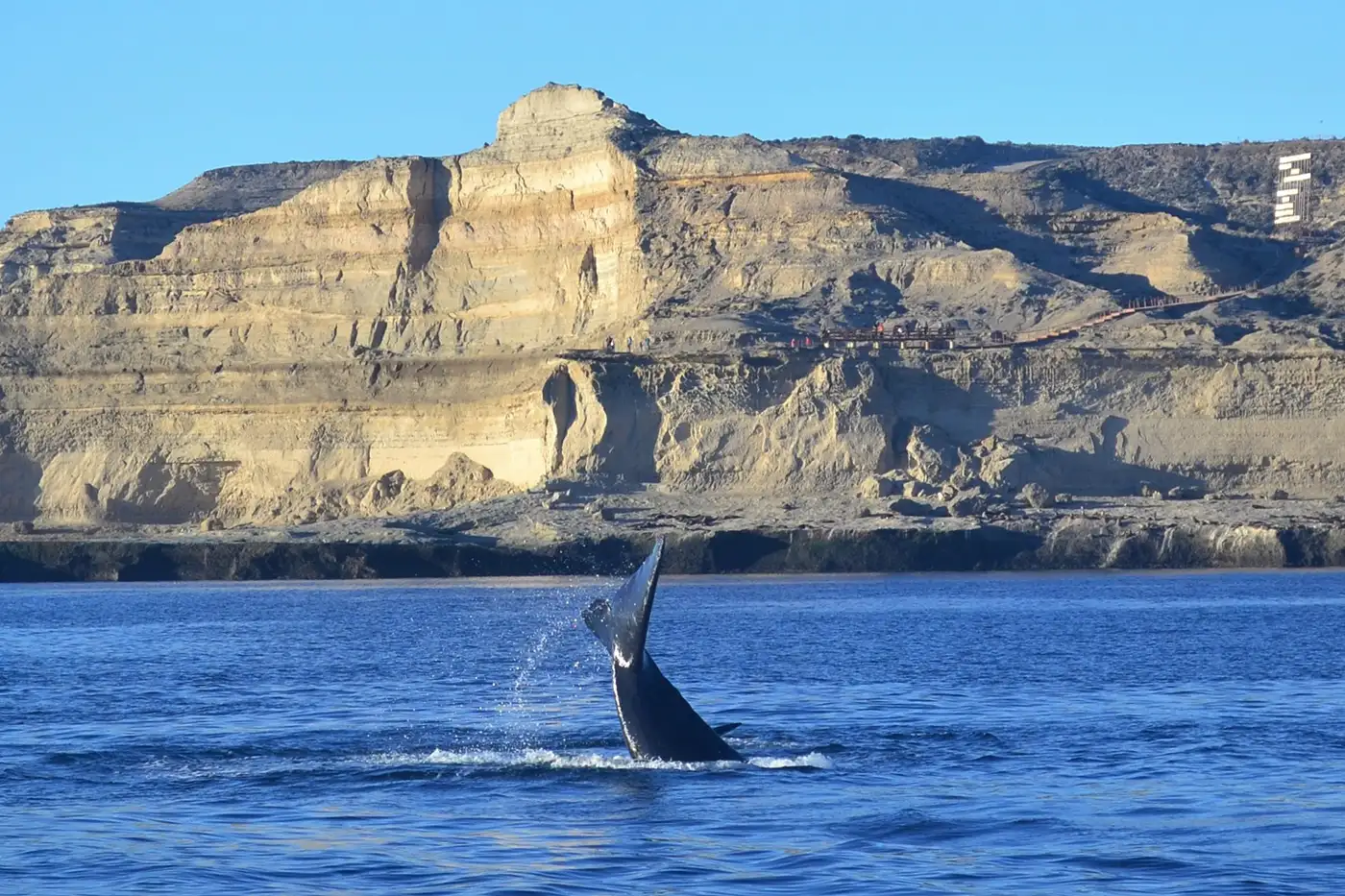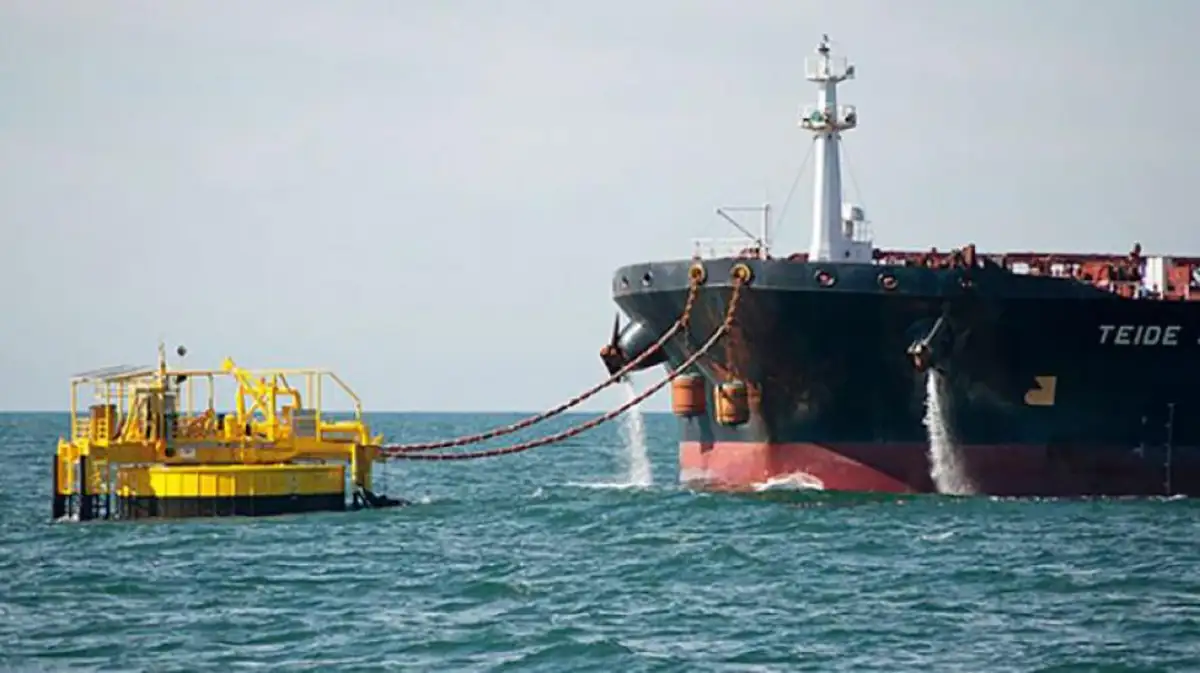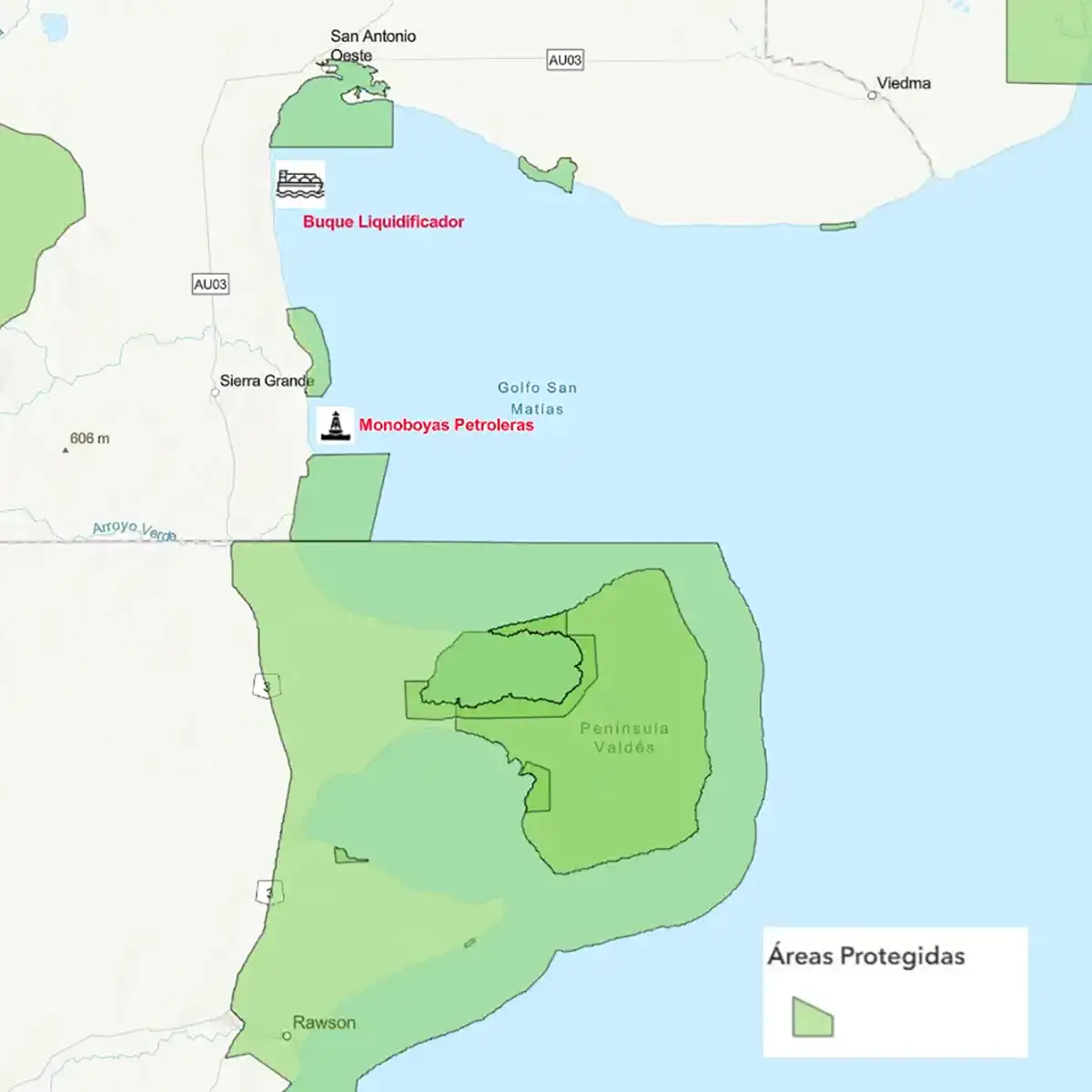
In this context, on Friday, December 27, the @FMarpatagonico sent a note to the regional office of Unesco requesting “to take the necessary measures to protect the integrity of the Península Valdés World Heritage Site”, a category that Unesco grants to some places on Earth “which are of outstanding universal value and as such form part of the common heritage of mankind” (Unesco, 1972).[1]
The @Fmarpatagonico and its Argentine member organizations warn that the hydrocarbon projects that are advancing in the San Matías Gulf could have serious consequences for biodiversity, water and air quality, local economy and culture. To support this assertion, two scientific reports have been submitted detailing the risks and potential impacts of hydrocarbon projects in the region. Prepared by Wildlife Conservation Society Argentina (WCS Argentina) and Fundación Ambiente y Recursos Naturales (FARN Argentina), these reports specifically analyze the effects of the pipeline and the hydrocarbon port terminal in Punta Colorada -a location on the coast of Río Negro, near coastal-marine protected areas of the Province and the Nation- and the impacts of the Liquefied Natural Gas Floating Unit Project.


Last September, Forum organizations had already held a meeting in Puerto Madryn with UNESCO authorities on the subject.
In 1999 UNESCO declared Peninsula Valdes a World Heritage Site.
Hydrocarbon treatment and transport projects in the San Matías Gulf (Río Negro province) could affect the marine biodiversity of the gulfs surrounding the Valdés Peninsula (Chubut province) due to the strong oceanographic and biological connectivity of this system.
FARN Report: Analysis of the environmental impacts on marine and terrestrial biodiversity, protected areas and climate of the FLNG project in Golfo San Matías, Río Negro, Argentina, November 2024.
WCS Argentina Report: Punta Colorada Oil Pipeline and Terminal – Golfo San Matías. Threat to one of the most outstanding coastal-marine areas of the Argentine Sea. 2024.
[1] UNESCO, Convention concerning the Protection of the World Natural and Cultural Heritage (https://unesdoc.unesco.org/ark:/48223/pf0000184177_spa).